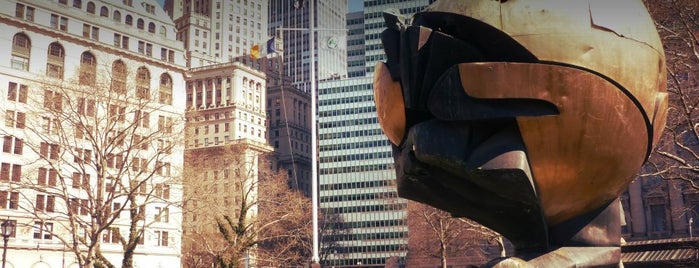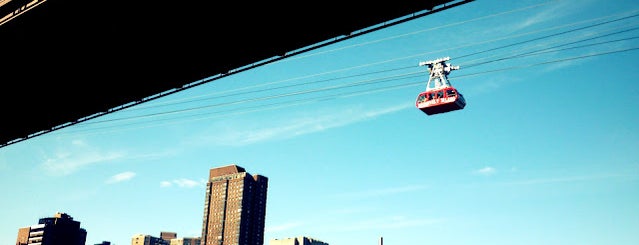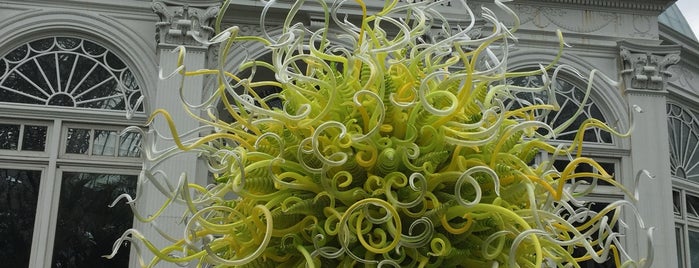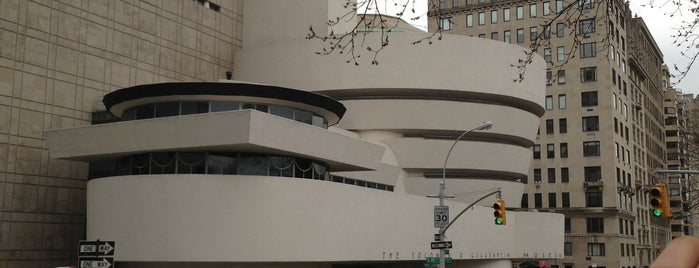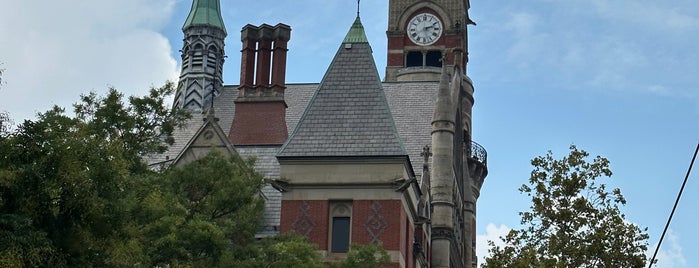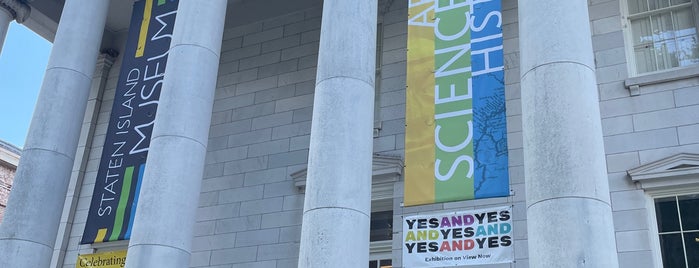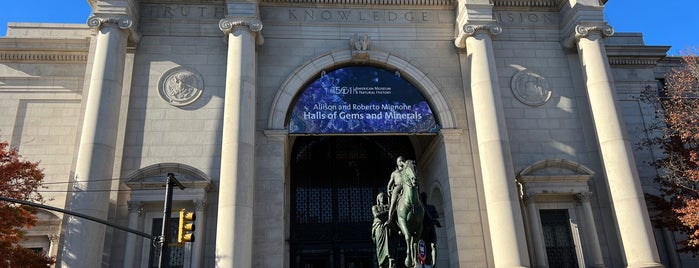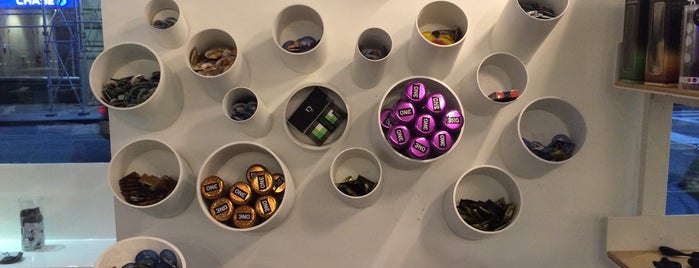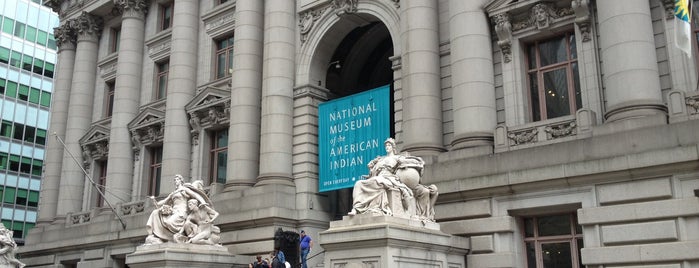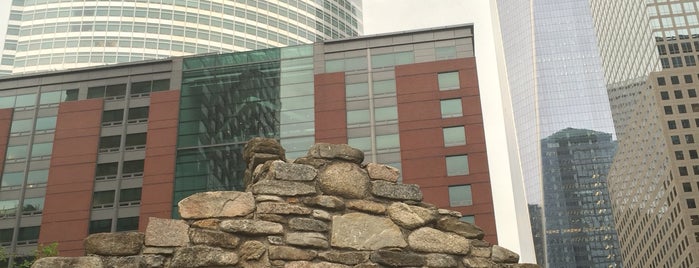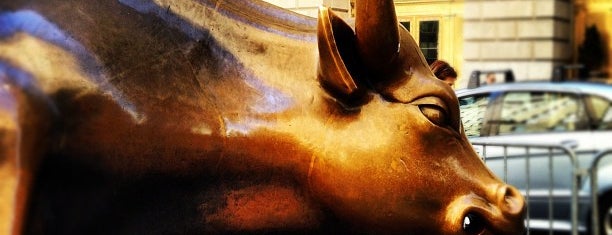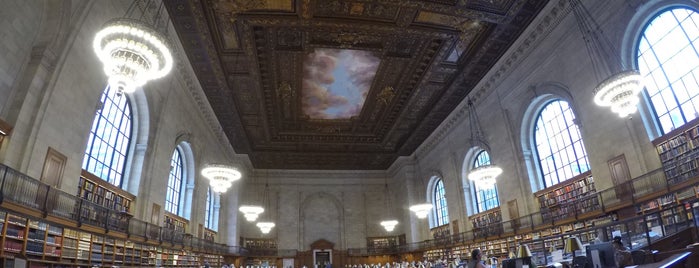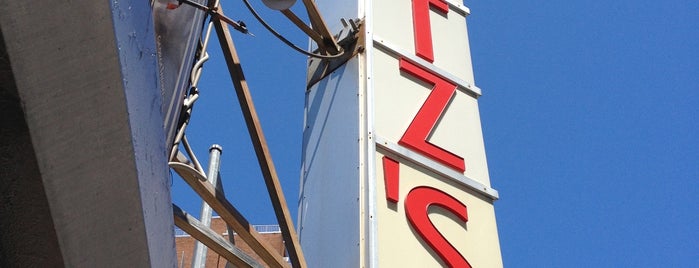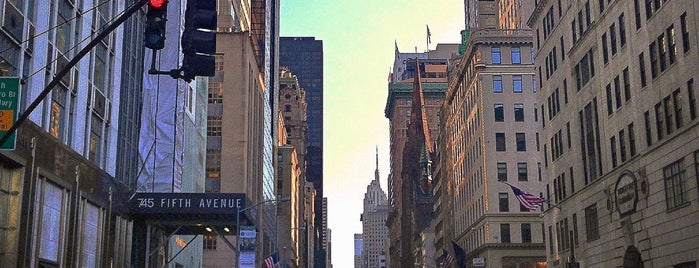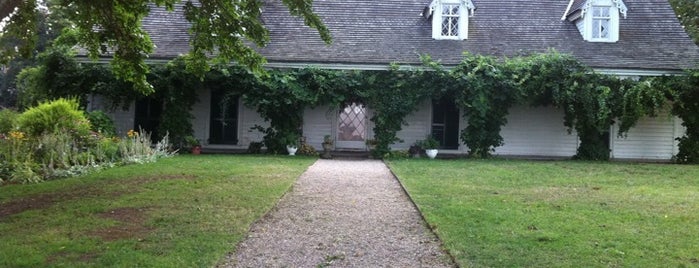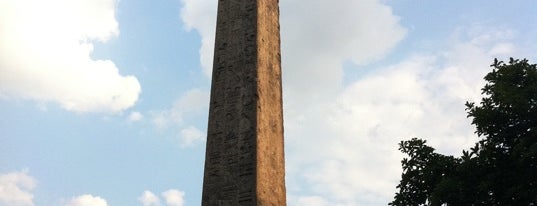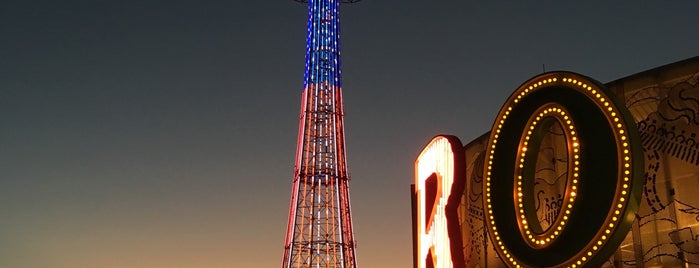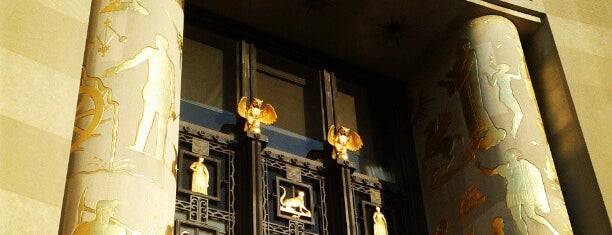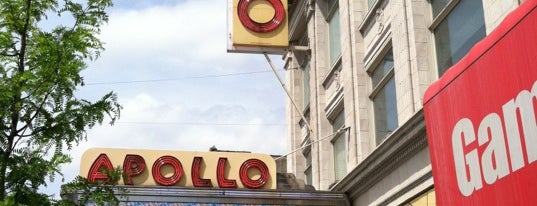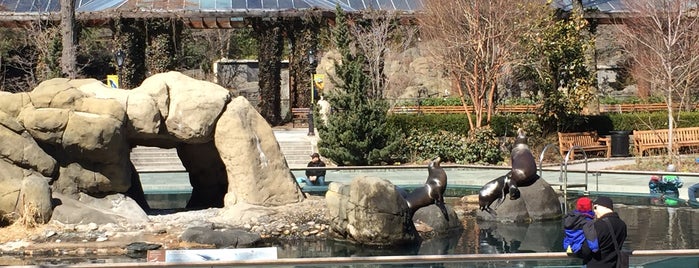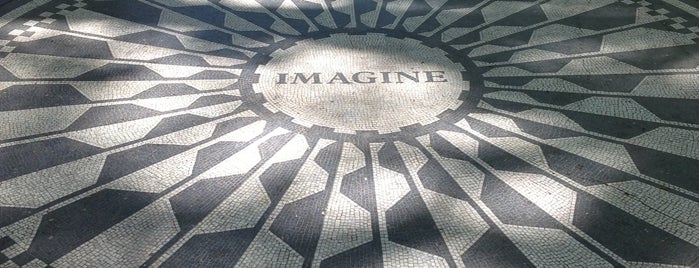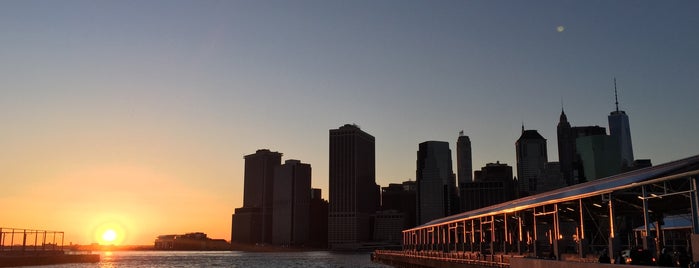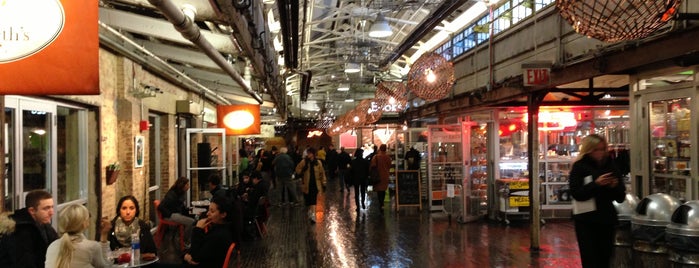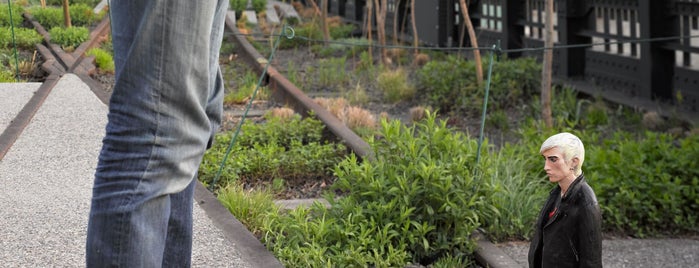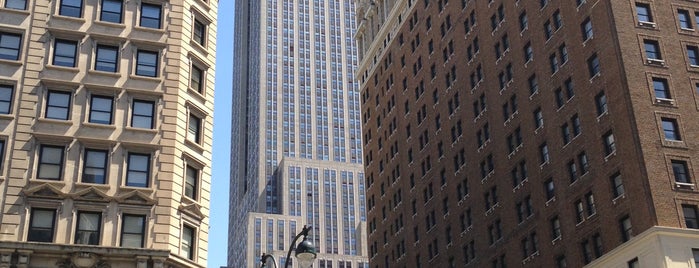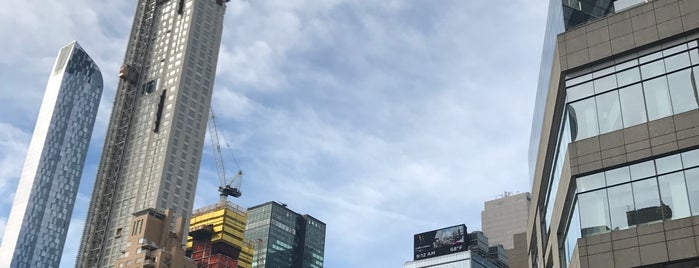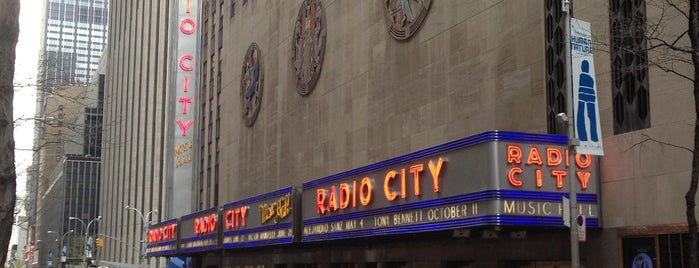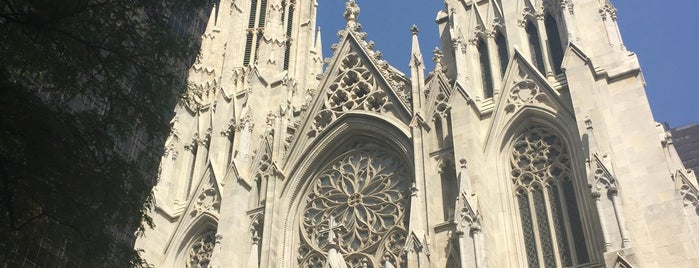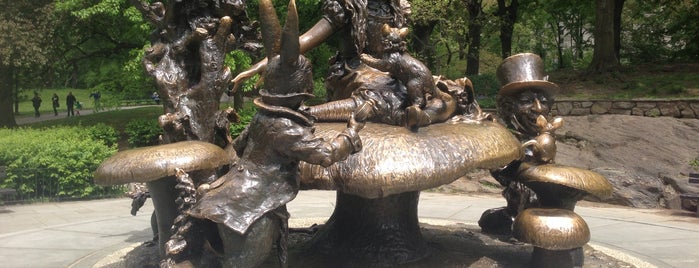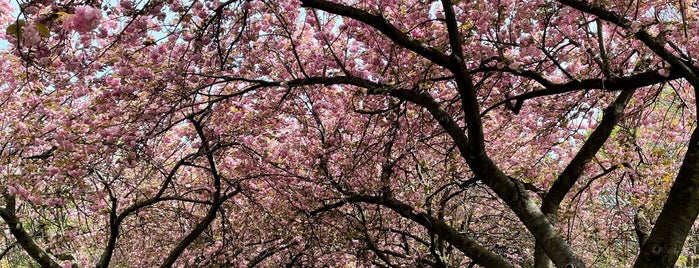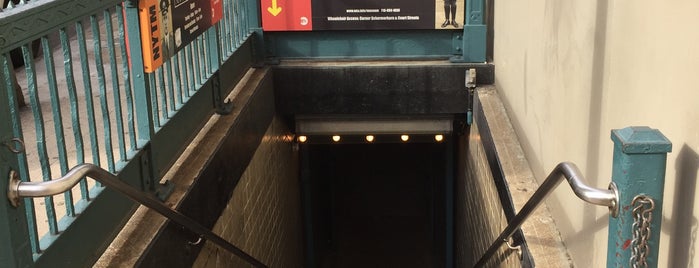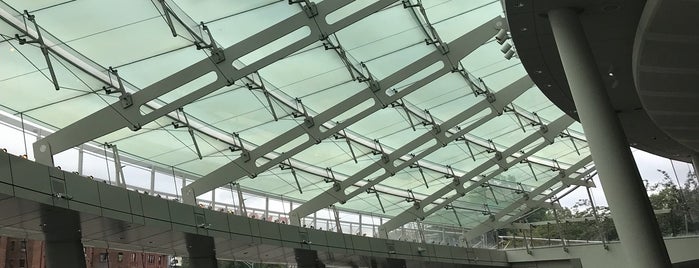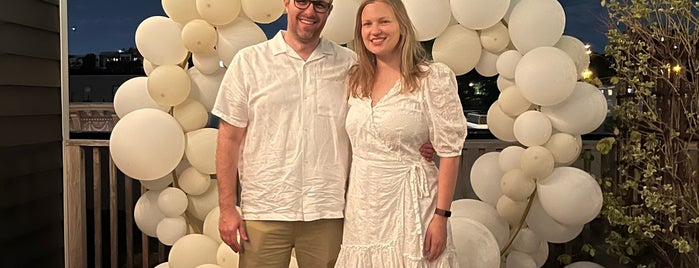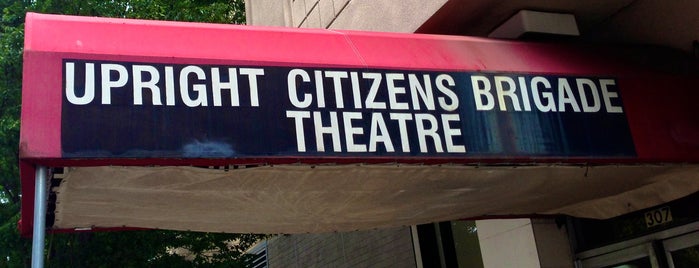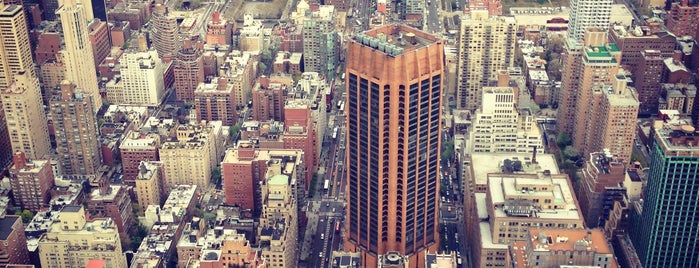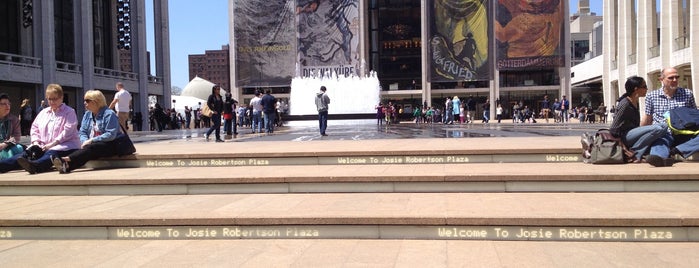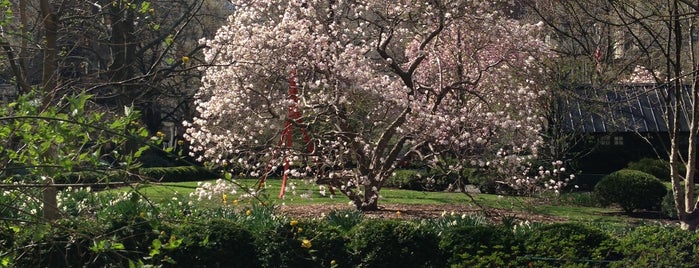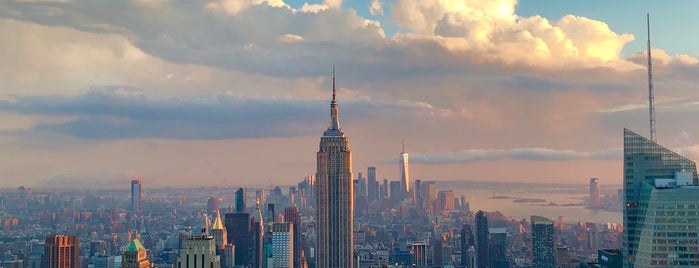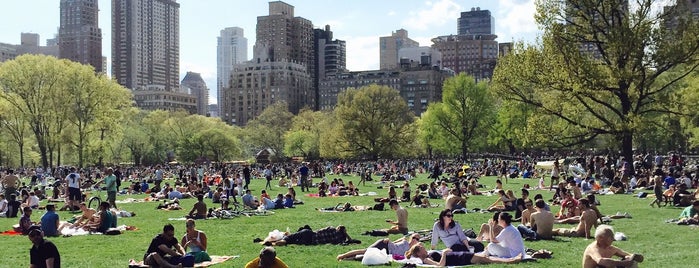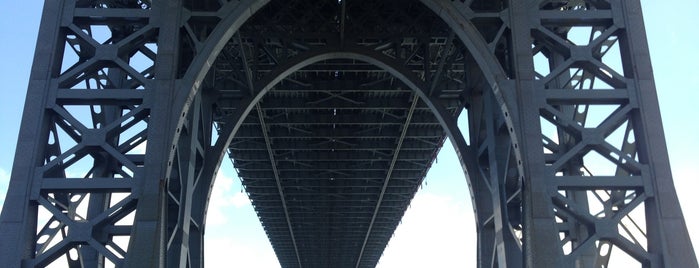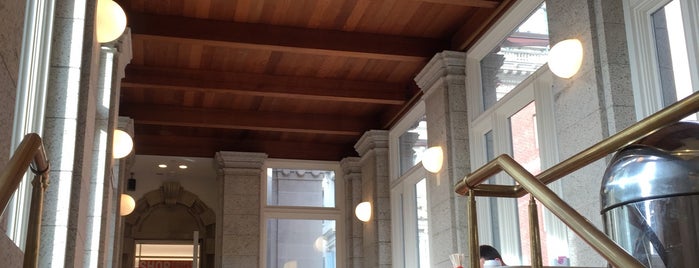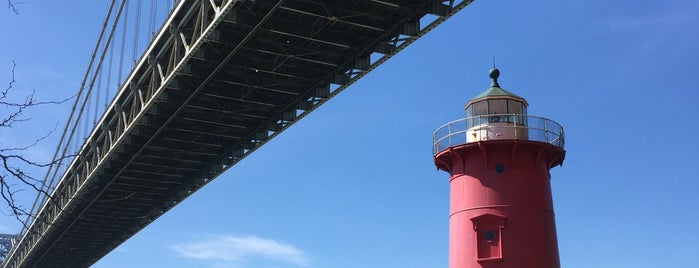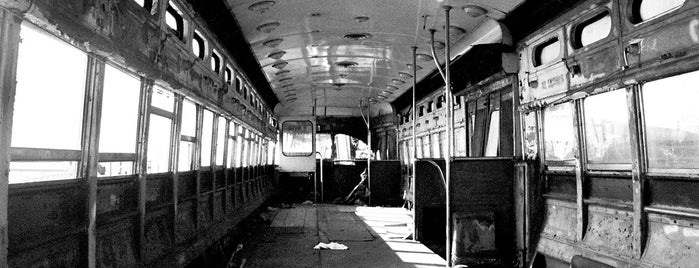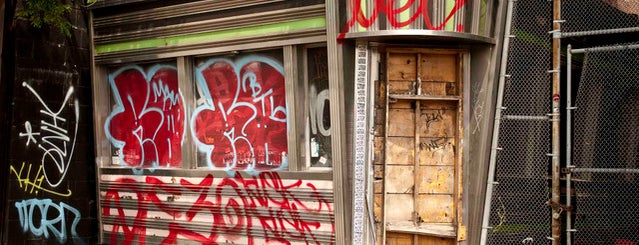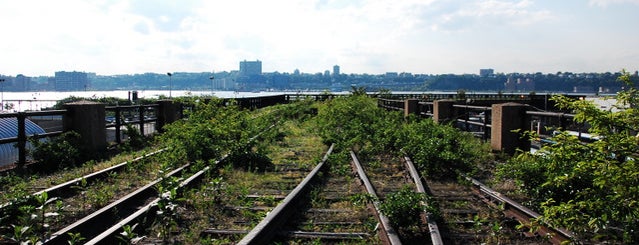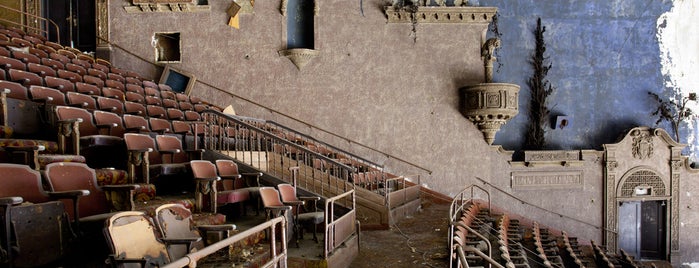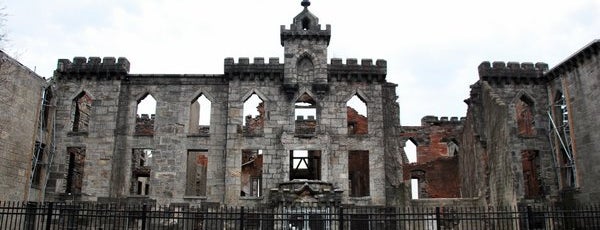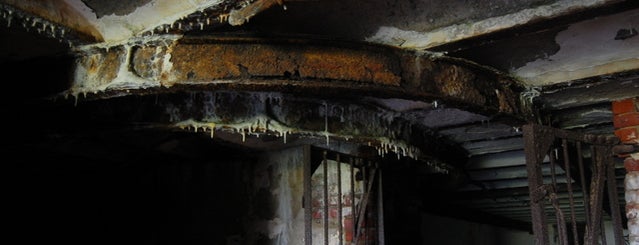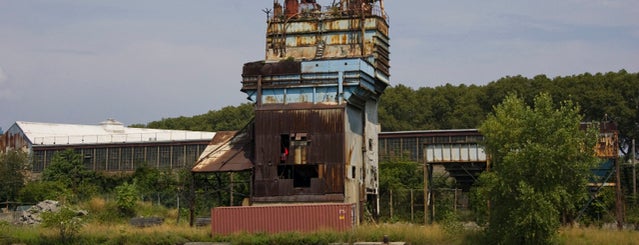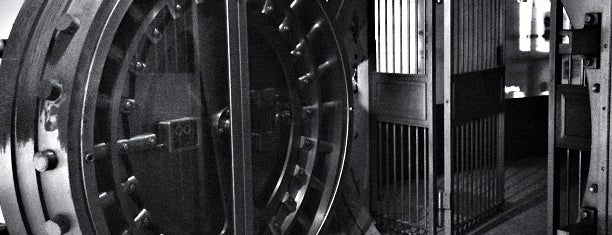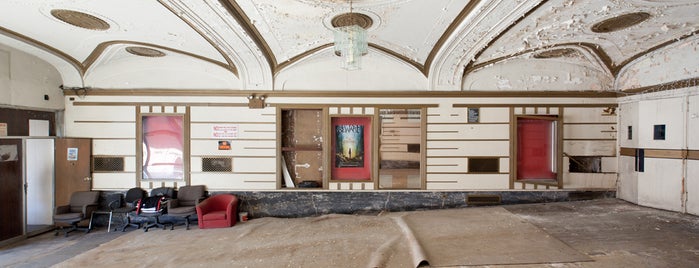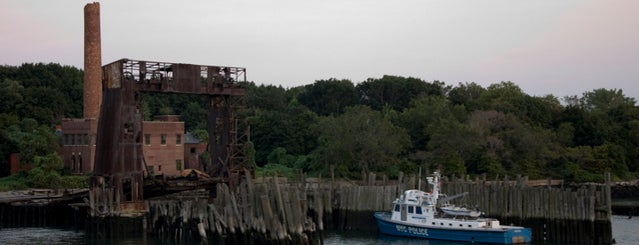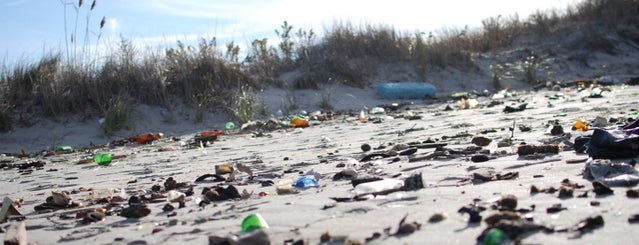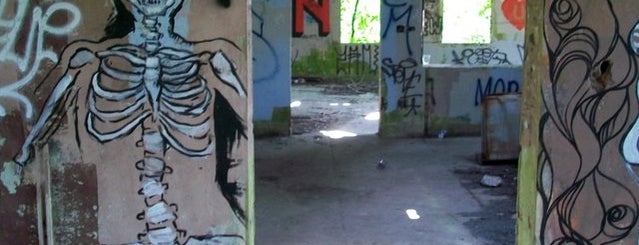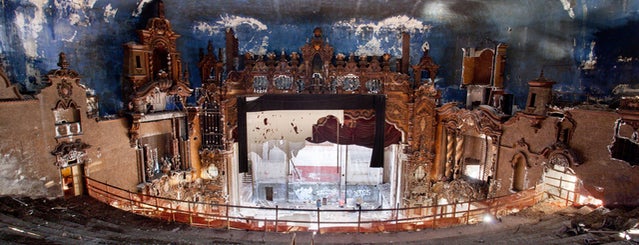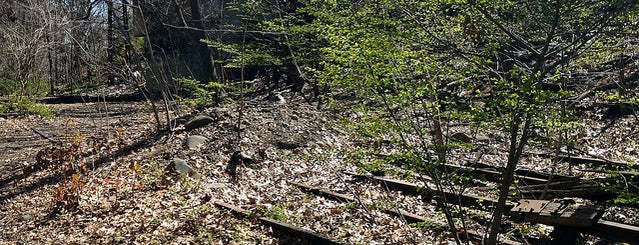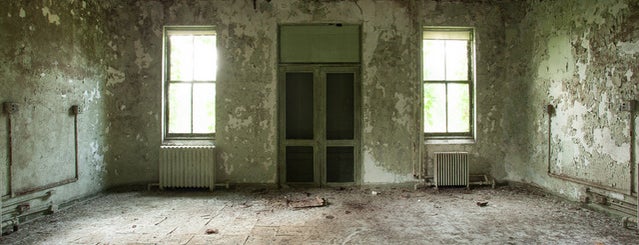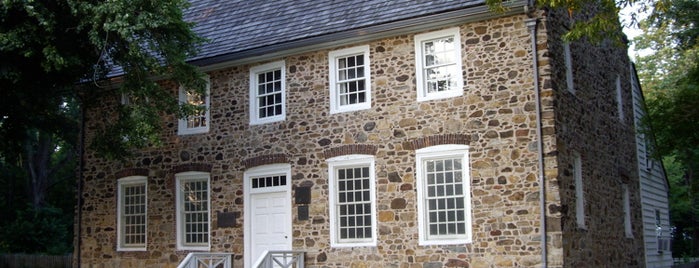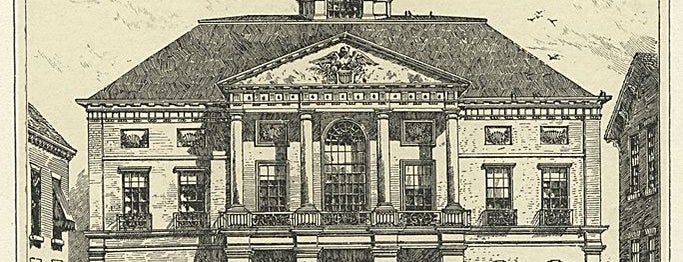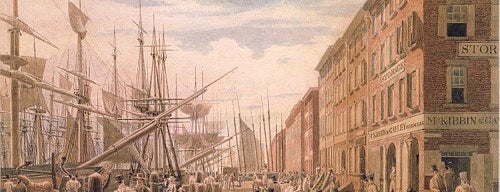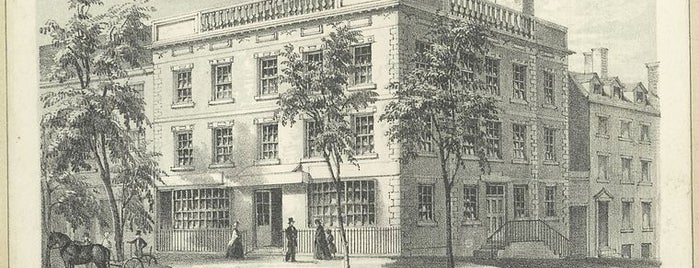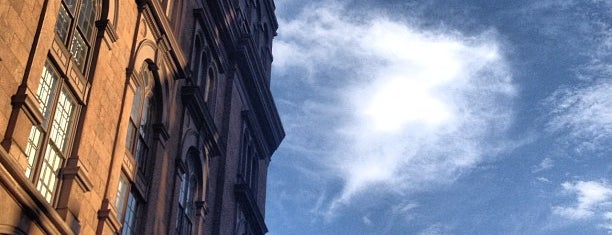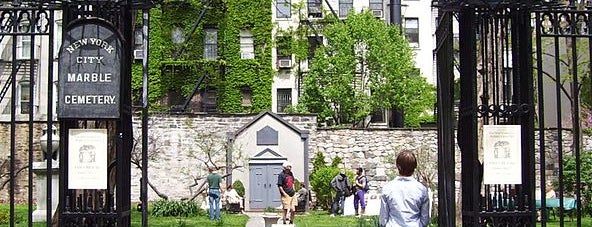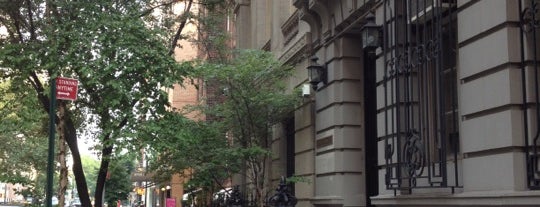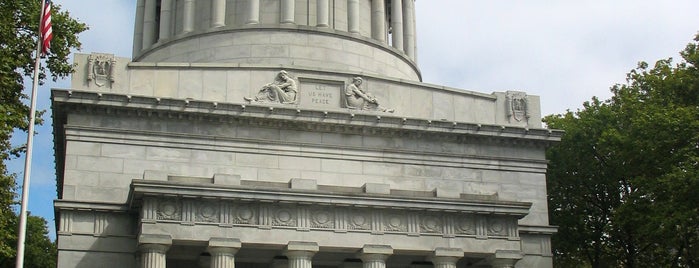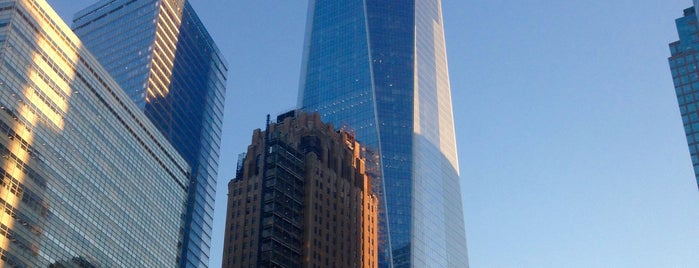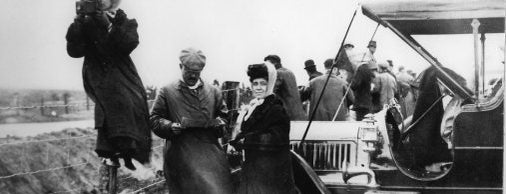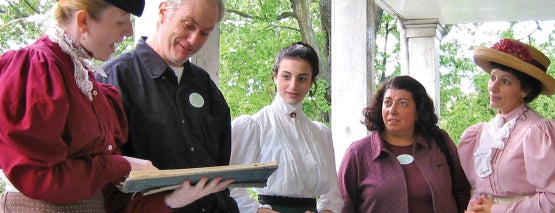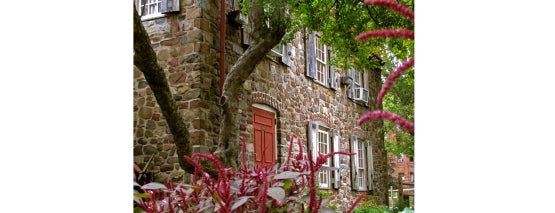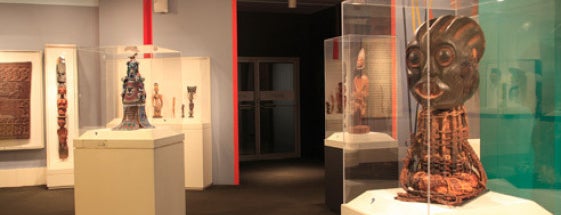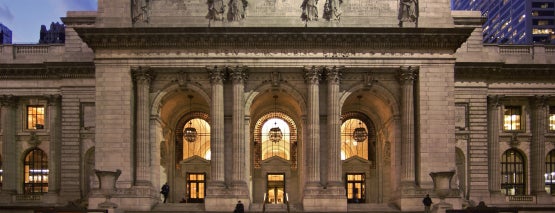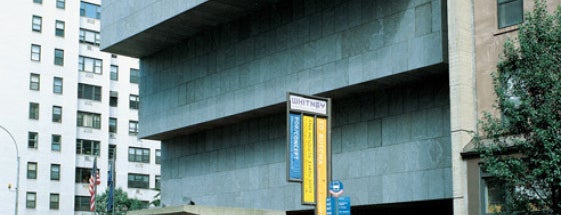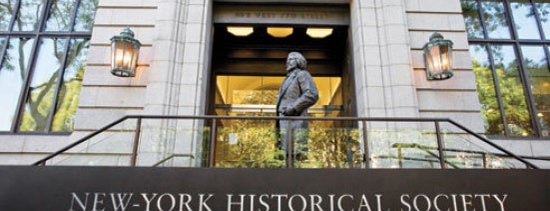![]() At this museum devoted to medieval art, a path winds through the peaceful grounds to a monastery that appears to have survived from the Middle Ages. Don’t miss the famed unicorn tapestries. Leia mais.
At this museum devoted to medieval art, a path winds through the peaceful grounds to a monastery that appears to have survived from the Middle Ages. Don’t miss the famed unicorn tapestries. Leia mais.
![]() MoMA helped to popularize Robert Indiana's design by commissioning it for use on its Christmas cards in 1965. Leia mais.
MoMA helped to popularize Robert Indiana's design by commissioning it for use on its Christmas cards in 1965. Leia mais.
![]() Nestled in a small Midtown plaza is an unexpected piece of history: five sections of the Berlin Wall have been on display here since 1990. Leia mais.
Nestled in a small Midtown plaza is an unexpected piece of history: five sections of the Berlin Wall have been on display here since 1990. Leia mais.
![]() The cemetery gate, located at the end of a narrow alley leading from Second Avenue, is unlocked to visitors only for a few hours on the 4th Sunday of each month from April to October. Leia mais.
The cemetery gate, located at the end of a narrow alley leading from Second Avenue, is unlocked to visitors only for a few hours on the 4th Sunday of each month from April to October. Leia mais.
![]() 27 buildings resembling Tudor homes with colorful doors, shutters and timber frames grace this gated street that's tucked away on the Upper West Side, nearly completely out of view to passersby. Leia mais.
27 buildings resembling Tudor homes with colorful doors, shutters and timber frames grace this gated street that's tucked away on the Upper West Side, nearly completely out of view to passersby. Leia mais.
![]() Originally bought as a backyard playground for his kids, Ray Pannone's 1936 subway car was instead placed in his diner. The only restaurant with a real NYC subway car as part of its decor. Leia mais.
Originally bought as a backyard playground for his kids, Ray Pannone's 1936 subway car was instead placed in his diner. The only restaurant with a real NYC subway car as part of its decor. Leia mais.
![]() So called because it's lined with statues of writers William Shakespeare, Robert Burns, Sir Walter Scott and Fitz-Greene Halleck—and Christopher Columbus, often referred to here as "the odd man out." Leia mais.
So called because it's lined with statues of writers William Shakespeare, Robert Burns, Sir Walter Scott and Fitz-Greene Halleck—and Christopher Columbus, often referred to here as "the odd man out." Leia mais.
![]() Designed by Calvert Vaux in the 1860s as a lookout point for the Great Lawn to the north and the Ramble to the south. Now home to the Henry Luce Nature Observatory. Leia mais.
Designed by Calvert Vaux in the 1860s as a lookout point for the Great Lawn to the north and the Ramble to the south. Now home to the Henry Luce Nature Observatory. Leia mais.
![]() Originally built as a backup to the NYC's main water supply, the reservoir now serves as an ecological sanctuary that houses more than 20 species, including herons, egrets, loons, coots, wood ducks. Leia mais.
Originally built as a backup to the NYC's main water supply, the reservoir now serves as an ecological sanctuary that houses more than 20 species, including herons, egrets, loons, coots, wood ducks. Leia mais.
![]() Built from enormous uncut boulders—one of which is said to weigh 100 tons—Central Park's Huddlestone Arch is supported not by mortar, concrete or metal but by gravity and friction alone. Leia mais.
Built from enormous uncut boulders—one of which is said to weigh 100 tons—Central Park's Huddlestone Arch is supported not by mortar, concrete or metal but by gravity and friction alone. Leia mais.
![]() Once an abandoned landfill, in the 1980s this area was turned into an open studio and exhibition space for artists, as well as a neighborhood park. Leia mais.
Once an abandoned landfill, in the 1980s this area was turned into an open studio and exhibition space for artists, as well as a neighborhood park. Leia mais.
![]() The site of George Washington's farewell to his officers in 1783 is Manhattan's oldest surviving structure. Fraunces Tavern is New York's only museum dedicated to American Revolutionary War history. Leia mais.
The site of George Washington's farewell to his officers in 1783 is Manhattan's oldest surviving structure. Fraunces Tavern is New York's only museum dedicated to American Revolutionary War history. Leia mais.
![]() No longer a hotel, in its heyday in the early 20th century, it was the largest one in NYC. It boasted the largest indoor saltwater swimming pool in the country, replete with a spring-fed waterfall. Leia mais.
No longer a hotel, in its heyday in the early 20th century, it was the largest one in NYC. It boasted the largest indoor saltwater swimming pool in the country, replete with a spring-fed waterfall. Leia mais.
![]() The High Line, in addition to being a magnificent park, is also a outdoor gallery featuring several works of temporary public art throughout the year. As you walk, look for art all around you! Leia mais.
The High Line, in addition to being a magnificent park, is also a outdoor gallery featuring several works of temporary public art throughout the year. As you walk, look for art all around you! Leia mais.
![]() Lightness of Being is a new group exhibition whose work displays a playful and irreverent attitude toward the formal ideals of classical sculpture. On view through December 13, 2013. Leia mais.
Lightness of Being is a new group exhibition whose work displays a playful and irreverent attitude toward the formal ideals of classical sculpture. On view through December 13, 2013. Leia mais.
![]() This shop maintains an amazing vibe while promoting good causes. It's staffed entirely by volunteers, and all profits go to a Housing Works, a nonprofit that fights homelessness and AIDS. Leia mais.
This shop maintains an amazing vibe while promoting good causes. It's staffed entirely by volunteers, and all profits go to a Housing Works, a nonprofit that fights homelessness and AIDS. Leia mais.
![]() The city’s only remaining commercial marine salvage yard. Wear good shoes and explore are your own risk. Some pictures of the amazing place: Leia mais.
The city’s only remaining commercial marine salvage yard. Wear good shoes and explore are your own risk. Some pictures of the amazing place: Leia mais.
![]() Castles? In New York? Why, yes! These ruins are a must, built by the Bannerman family as warehouse facility for their military surplus business in 1901. Get there by boat or kayak, tours available. Leia mais.
Castles? In New York? Why, yes! These ruins are a must, built by the Bannerman family as warehouse facility for their military surplus business in 1901. Get there by boat or kayak, tours available. Leia mais.
![]() Hiding in plain sight, the abandoned South Side Hospitals were one of the largest public health undertakings in US history. See photographs of the amazing buildings at Leia mais.
Hiding in plain sight, the abandoned South Side Hospitals were one of the largest public health undertakings in US history. See photographs of the amazing buildings at Leia mais.
![]() Look for the abandoned trolleys on the pier. The cars are actually from Boston and Norway, part of an effort by one man to bring back trolleys to Brooklyn. Find out more: Leia mais.
Look for the abandoned trolleys on the pier. The cars are actually from Boston and Norway, part of an effort by one man to bring back trolleys to Brooklyn. Find out more: Leia mais.
![]() Keller’s was once a hotel for sailors and later an SRO. Today all that's left is its sad state of vacancy and a retro HOTEL sign still attached. See more: Leia mais.
Keller’s was once a hotel for sailors and later an SRO. Today all that's left is its sad state of vacancy and a retro HOTEL sign still attached. See more: Leia mais.
![]() Quite possibly the smallest diner in NYC, its wedged between two buildings. Empty since 2006, the chrome and green diner is now canvased with graffiti. See more: Leia mais.
Quite possibly the smallest diner in NYC, its wedged between two buildings. Empty since 2006, the chrome and green diner is now canvased with graffiti. See more: Leia mais.
![]() Did you know there's still a section of the High Line that's still abandoned? We can't officially tell you how to break in but you can read about it and see photos here: Leia mais.
Did you know there's still a section of the High Line that's still abandoned? We can't officially tell you how to break in but you can read about it and see photos here: Leia mais.
![]() A beautiful decommissioned subway stop sits below the park. See it on a tour with the Transit Museum or stay on the 6 train after Brooklyn Bridge station. Find out more: Leia mais.
A beautiful decommissioned subway stop sits below the park. See it on a tour with the Transit Museum or stay on the 6 train after Brooklyn Bridge station. Find out more: Leia mais.
![]() At 4515 New Utrecht Ave, there's an abandoned Loew's 46th St Theatre, which opened in Oct 1927. Many famous people played there when it was a concert venue, such as The Bee Gees and Gladys Knight. Leia mais.
At 4515 New Utrecht Ave, there's an abandoned Loew's 46th St Theatre, which opened in Oct 1927. Many famous people played there when it was a concert venue, such as The Bee Gees and Gladys Knight. Leia mais.
![]() Recently closed off for renovation, this was once home to teenage runaways living the dream in an abandoned MTA powerhouse on the shore of the notoriously toxic Gowanus Canal. Leia mais.
Recently closed off for renovation, this was once home to teenage runaways living the dream in an abandoned MTA powerhouse on the shore of the notoriously toxic Gowanus Canal. Leia mais.
![]() The fabled Admirals Row saw demolition in Jan '12 but you can still see the two last townhouses and crumbling manufacturing buildings. Read about what'll happen to the yards: Leia mais.
The fabled Admirals Row saw demolition in Jan '12 but you can still see the two last townhouses and crumbling manufacturing buildings. Read about what'll happen to the yards: Leia mais.
![]() The abandoned hospital was designed by James Renwick and is a landmarked ruin. Help support its preservation: Leia mais.
The abandoned hospital was designed by James Renwick and is a landmarked ruin. Help support its preservation: Leia mais.
![]() Moss and Brill’s abandoned Hamilton Theatre opened in 1913. Since it stopped screening movies in 1958, it has been used as a sports arena, disco, retail space and warehouse. Leia mais.
Moss and Brill’s abandoned Hamilton Theatre opened in 1913. Since it stopped screening movies in 1958, it has been used as a sports arena, disco, retail space and warehouse. Leia mais.
![]() In addition to surf, sand and swim, the beach is also home to a military fort dating back to 1902 that protected for New York City until World War II. See photos here: Leia mais.
In addition to surf, sand and swim, the beach is also home to a military fort dating back to 1902 that protected for New York City until World War II. See photos here: Leia mais.
![]() This abandoned theatre, once one of the five “Loew’s Wonder Theaters", opened on September 7, 1929 and was designed by Rapp and Rapp and decorated by Harold W. Rambush. Leia mais.
This abandoned theatre, once one of the five “Loew’s Wonder Theaters", opened on September 7, 1929 and was designed by Rapp and Rapp and decorated by Harold W. Rambush. Leia mais.
![]() This is the largest legal aerosol exhibit in the US, possibly the world. It was founded in '93 as a haven for aerosol artists to hone and showcase their craft. See more: Leia mais.
This is the largest legal aerosol exhibit in the US, possibly the world. It was founded in '93 as a haven for aerosol artists to hone and showcase their craft. See more: Leia mais.
![]() When you're visiting here, don't miss the abandoned Long Island Railroad Penny Bridge Station along the creek next to Cavalry Cemetery. Leia mais.
When you're visiting here, don't miss the abandoned Long Island Railroad Penny Bridge Station along the creek next to Cavalry Cemetery. Leia mais.
![]() Don't miss the vaults and a very special shower in the basement! Find out more of the secret history on Untapped Cities Leia mais.
Don't miss the vaults and a very special shower in the basement! Find out more of the secret history on Untapped Cities Leia mais.
![]() The abandoned Ridgewood Theatre opened on December 23, 1916 and was the oldest continuous first run movie theater in the country when it closed in 2008. Leia mais.
The abandoned Ridgewood Theatre opened on December 23, 1916 and was the oldest continuous first run movie theater in the country when it closed in 2008. Leia mais.
![]() One of the easiest abandoned places to break into, this enormous plant was built by the NY Central Railroad, later operated by ConEd. See photos from our expedition inside: Leia mais.
One of the easiest abandoned places to break into, this enormous plant was built by the NY Central Railroad, later operated by ConEd. See photos from our expedition inside: Leia mais.
![]() An island of rich history: a smallpox hospital in the 1850s, where Typhoid Mary died, a home to WWII veterans, and a drug center in the 1950s. It's now abandoned and off limits to the public. Leia mais.
An island of rich history: a smallpox hospital in the 1850s, where Typhoid Mary died, a home to WWII veterans, and a drug center in the 1950s. It's now abandoned and off limits to the public. Leia mais.
![]() Having served as both land dump and horse rendering plant, this area is dotted with bottles, horse bones, abandoned boats, and vintage nicknacks including creepy toys and old hand guns. Leia mais.
Having served as both land dump and horse rendering plant, this area is dotted with bottles, horse bones, abandoned boats, and vintage nicknacks including creepy toys and old hand guns. Leia mais.
![]() This formerly nuclear-armed beach protected NYC with canons, Nike, Ajax & Hercules missiles. It's now an explorer's heaven of crumbling buildings and battlements. Read more: Leia mais.
This formerly nuclear-armed beach protected NYC with canons, Nike, Ajax & Hercules missiles. It's now an explorer's heaven of crumbling buildings and battlements. Read more: Leia mais.
![]() The Spanish Baroque Revival styled theater opened on Christmas Day, 1928. It's been in a state of disrepair since 1987, but plans are underway to demolish it and build a 17-story tower in its place. Leia mais.
The Spanish Baroque Revival styled theater opened on Christmas Day, 1928. It's been in a state of disrepair since 1987, but plans are underway to demolish it and build a 17-story tower in its place. Leia mais.
![]() Part of the abandoned QueensWay, or the "Queens High Line" is just nearby. For the intrepid, it's worth an exploration along the old train tracks. Leia mais.
Part of the abandoned QueensWay, or the "Queens High Line" is just nearby. For the intrepid, it's worth an exploration along the old train tracks. Leia mais.
![]() The intrepid explore inside the crumbling officer's quarters but also look out for what the soldiers carved into the walls of the forts. See more at: Leia mais.
The intrepid explore inside the crumbling officer's quarters but also look out for what the soldiers carved into the walls of the forts. See more at: Leia mais.
![]() In 1776, Benjamin Franklin, John Adams, and Edward Rutledge unsuccessfully negotiated with Lord Howe to end the Revolutionary War at Conference House. Leia mais.
In 1776, Benjamin Franklin, John Adams, and Edward Rutledge unsuccessfully negotiated with Lord Howe to end the Revolutionary War at Conference House. Leia mais.
![]() The McComb Mansion, George Washington's second presidential mansion was located on this site. Leia mais.
The McComb Mansion, George Washington's second presidential mansion was located on this site. Leia mais.
![]() Stop by the site of George Washington's first inauguration and the masonic bible he used. Leia mais.
Stop by the site of George Washington's first inauguration and the masonic bible he used. Leia mais.
![]() Check out George Washington's pew at the oldest surviving church building in Manhattan. Leia mais.
Check out George Washington's pew at the oldest surviving church building in Manhattan. Leia mais.
![]() Did you know the Young Men’s Republican Union moved Lincoln's speech to the Great Hall of Cooper Union out of fear that not enough people would come out to Brooklyn to hear him speak. Leia mais.
Did you know the Young Men’s Republican Union moved Lincoln's speech to the Great Hall of Cooper Union out of fear that not enough people would come out to Brooklyn to hear him speak. Leia mais.
![]() Did you know two years after FDR got married he moved into this house with his mother and wife. Leia mais.
Did you know two years after FDR got married he moved into this house with his mother and wife. Leia mais.
![]() When you visit Grant's Tomb make sure to visit the site of Grant's original internment behind the current mausoleum. Leia mais.
When you visit Grant's Tomb make sure to visit the site of Grant's original internment behind the current mausoleum. Leia mais.
![]() Did you know that George Washington had his headquarters in the same house later owned by Aaron Burr's wife. Leia mais.
Did you know that George Washington had his headquarters in the same house later owned by Aaron Burr's wife. Leia mais.
![]() PHOTO: Before these were apartments, this entire block was Ebbets Field, home of the Brooklyn Dodgers! Click "More Info" for an amazing aerial shot of the field from 1951! Leia mais.
PHOTO: Before these were apartments, this entire block was Ebbets Field, home of the Brooklyn Dodgers! Click "More Info" for an amazing aerial shot of the field from 1951! Leia mais.
![]() PHOTO: The Vanderbilt family owned an enormous mansion here on 5th Ave and 57th which was torn down in 1927. Click "More Info" to see a historic pic of this gigantic home! Leia mais.
PHOTO: The Vanderbilt family owned an enormous mansion here on 5th Ave and 57th which was torn down in 1927. Click "More Info" to see a historic pic of this gigantic home! Leia mais.
![]() This Victorian Gothic cottage was home to photographer and noted badass Alice Austen, who was known for her gritty street photography—and for being the first woman on Staten Island to own a car. Leia mais.
This Victorian Gothic cottage was home to photographer and noted badass Alice Austen, who was known for her gritty street photography—and for being the first woman on Staten Island to own a car. Leia mais.
![]() The preserved village plays host to costumed blacksmiths, shoemakers and tinsmiths as well as the Voorlezer’s House, the oldest wooden elementary schoolhouse still standing in America. Leia mais.
The preserved village plays host to costumed blacksmiths, shoemakers and tinsmiths as well as the Voorlezer’s House, the oldest wooden elementary schoolhouse still standing in America. Leia mais.
![]() John Turturro narrates the audio tour at this Park Slope site, where parts of the Battle of Long Island took place. The park itself was the location for the original clubhouse of the Brooklyn Dodgers. Leia mais.
John Turturro narrates the audio tour at this Park Slope site, where parts of the Battle of Long Island took place. The park itself was the location for the original clubhouse of the Brooklyn Dodgers. Leia mais.
![]() The fifth floor contains at least 2,000 paintings, sculptures, furniture, and Native American and Spanish colonial artifacts Leia mais.
The fifth floor contains at least 2,000 paintings, sculptures, furniture, and Native American and Spanish colonial artifacts Leia mais.
![]() This museum was the HQ for New York’s customs offices until 1971. It was also ground zero for the Stamp Act Riots in 1765, as Fort Amsterdam, when U.S. and British soldiers used it as a stronghold. Leia mais.
This museum was the HQ for New York’s customs offices until 1971. It was also ground zero for the Stamp Act Riots in 1765, as Fort Amsterdam, when U.S. and British soldiers used it as a stronghold. Leia mais.
![]() The fourth floor served as the home and work space for four Irish maids and still contains its original furnishings, including clothesline hooks over the doors, the call bell and a coal stove. Leia mais.
The fourth floor served as the home and work space for four Irish maids and still contains its original furnishings, including clothesline hooks over the doors, the call bell and a coal stove. Leia mais.
![]() The main branch on 42nd Street opened a new children’s room in '08, after the old one closed. The first one is now home to administrative offices and still contains the original chairs meant for kids. Leia mais.
The main branch on 42nd Street opened a new children’s room in '08, after the old one closed. The first one is now home to administrative offices and still contains the original chairs meant for kids. Leia mais.
![]() Henry Clay Frick’s private art holdings shares space with a bowling alley. After he passed away in 1919, his daughter Helen turned it into a catalog room, but original details remain. Leia mais.
Henry Clay Frick’s private art holdings shares space with a bowling alley. After he passed away in 1919, his daughter Helen turned it into a catalog room, but original details remain. Leia mais.
![]() The 6/27 - 9/1 installation, "Robert Irwin: Scrim veil—Black rectangle—Natural light (1977)" was designed specifically for the Whitney’s light-filled fourth-floor gallery. Leia mais.
The 6/27 - 9/1 installation, "Robert Irwin: Scrim veil—Black rectangle—Natural light (1977)" was designed specifically for the Whitney’s light-filled fourth-floor gallery. Leia mais.
![]() The city’s oldest museum has an archive of more than 1.6 million pieces of art, including Hudson River School paintings and the entire collection of John James Audubon’s Birds of America watercolors. Leia mais.
The city’s oldest museum has an archive of more than 1.6 million pieces of art, including Hudson River School paintings and the entire collection of John James Audubon’s Birds of America watercolors. Leia mais.
![]() Hidden behind the wall at the first bay near the rotunda is a ceramic tile mural done by Joan Miró. The work was commissioned by museum trustee Harry F. Guggenheim in 1963 to honor his late wife. Leia mais.
Hidden behind the wall at the first bay near the rotunda is a ceramic tile mural done by Joan Miró. The work was commissioned by museum trustee Harry F. Guggenheim in 1963 to honor his late wife. Leia mais.
![]() Mysterious artifacts were found in the wall of a room where Poe’s young wife, Virginia, slept, and visitors can view the bed frame that she died on. Leia mais.
Mysterious artifacts were found in the wall of a room where Poe’s young wife, Virginia, slept, and visitors can view the bed frame that she died on. Leia mais.
![]() When you visit the oldest farmhouse in Manhattan, ask to see the still-visible board used for nine men’s morris, a strategic game dating back to the Roman Empire. Leia mais.
When you visit the oldest farmhouse in Manhattan, ask to see the still-visible board used for nine men’s morris, a strategic game dating back to the Roman Empire. Leia mais.
